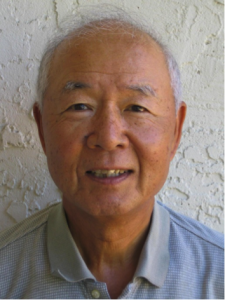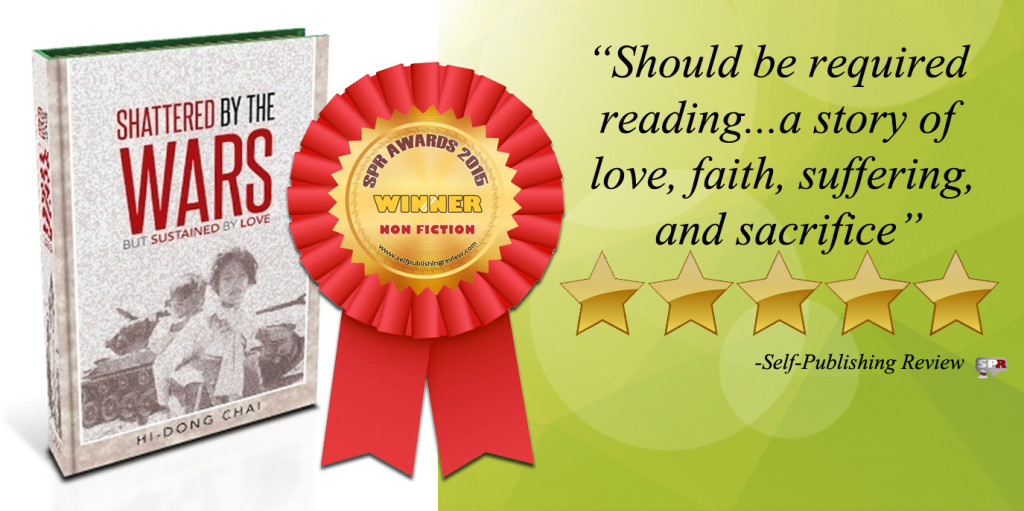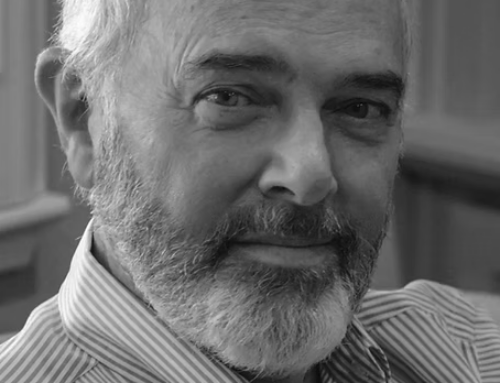
Author Hi-Dong Chai
Hi-Dong Chai, born in Korea and educated in the United States with a Ph.D. in engineering, established himself as an authority in his field with numerous inventions and publications. He is an inventor/co-inventor of 52 inventions, that were either published in the IBM invention disclosure bulletin or filed for the U.S. patents, and author/coauthor of 40 technical papers. He also published a book, Electromechanical Motion Devices, Prentice Hall, 1998. He worked for IBM for 19 years in both engineering and management positions, took an early retirement in 2007, and went to teach at San Jose State University as a professor of electrical engineering.
After retiring from the university in 2002 as professor emeritus, he focused his attention on creative writing to share his life experiences under the four political system – Imperialist Japan, Communist North Korea, Democratic South Korea in its infancy, and the United States of America – and through World War II in the Pacific and the Korean War. In 2012, Guideposts magazine published My Truest Hope, a story of his life in America. In the same year Blossoms and Bayonets, a fictionalized version of his family under Japan, co-authored with Jana McBurney-Lin, was published. In 2013, Inspiring Voices of Guideposts magazine published Shattered by the Wars, a story of his family during WWII under Japan and during the Korean War, in 2013. Currently, he is working on his American story, First Seven Years in America.
More of his work can be found on his website, www.hidongchai.com.
Synopsis: Shattered by the Wars
I hate war. War kills. War maims. War widows. War orphans. And it leaves a deep scar not only on the land, that will take years to heal, but also in the hearts of those who are affected by the war. I am one of those who carry a deep emotional wound to this day, more than sixty years later.
Shattered By The Wars is based on a story of my family in Seoul, Korea. It is a story of love, sacrifice, faith, suffering – all wrapped in one package.
Father — a Korean Christian minister in South Korea — gave his life for his God. He was in prison under Japan in WWII, and during the Korean War when Seoul was under the Northern army, he was taken away by the North. He never returned. 1942 -1950
Hi-Bum, my eldest brother, the brightest in my family, gave us much suffering because his Marxist views in the democratic South Korea. He was taken to prison by the South Korean police. When the Northern army entered Seoul during the Korean War in 1950, he was released from the prison. When the South recaptured Seoul, he disappeared and never returned. 1945-1950.
Hi-Seung, my elder brother, the dumbest in my family, gave his life to save his father in the Japanese prison during WWII. In 1942 he left home for Japan as a vibrant 15-year old boy as a volunteer soldier. In 1945 he came back home as an injured old man, and died from his injury a year later. 1942-1946
During the Korean War, when Seoul was freed from the Northern army, I and my mother fled Seoul. Without Father, we struggled to survive for the two long years. Then in 1953 during the Korean War, Mother put me — her youngest 16 year old son — on a boat heading for America so that he would be safe and get a good education.
The heroine in the story is my mother as seen by her youngest son. Mother prayed without ceasing; days and nights; when she was happy and when she was sad. Through her ‘Not my will but Your will be done’ prayers, she was able to walk through the dark tunnel of despair and distress, and led us onward with love and grace and absolute faith in God.
I wrote the story in the hope that the readers would seek harmony at home and peace in the world. I picture a scene where people from diverse cultures hold hands across the vast continents and over the deep oceans, form a huge circle, look at each other with broad smiles, and sing a mighty song of brotherhood. Wouldn’t it be wonderful if that day would come in our lifetime?
What drove you to write this memoir?
In my early teens, I decided to share the story of my mother who had led her family with love and grace in spite of her losing her loved ones – three babies before they could walk or talk, one son through WWII, another son through the Korean War, and her husband who was kidnapped by the North Korean communists during the Korean War. And during the refugee period in the Korean War, she fed me while she went hungry.
She was harassed by the Japanese police during WWII because her husband was a Christian minister who refused to bow down to the picture of the Japanese emperor; she was harassed by the South Korean police because one of her sons turned a communist in the democratic South; and she was left alone to take care her family when the North Korean communists took her husband away. Through all her trials and tribulations, she marched on and led us onward with absolute faith in God.
After publishing the story, I realize that it is a must-read story for many American to appreciate how lucky they are to live in America, where there are no foreign soldiers with bayonets on their shoulders walk the streets and tell them what god to worship, what language to speak, what flag to fly… I am so grateful to be an American. I pray that America stays strong to be the beacon for liberty and justice, not only for Americans but for all the people of the world.
How difficult was it for you to write about these very intense situations? Was it cathartic?
I wanted to share with the world what was deep in my heart. And I let my deep-seated feelings surface to the top and shed many tears during my writing. Yes, it was cleansing.
What’s the main message you’d like people to take from your book?
War kills. War maims. War orphans… As individuals, we can not stop wars. But we can promote peace and brotherhood wherever we may be.
How has your family reacted to your memoir?
The only person who is alive is my older sister who is 83 years old. She doesn’t agree with certain portions of my story. I can understand her because life is like an elephant, and we may see different parts of the same elephant. Also in order to make the story interesting, I exaggerated or fictionalized certain parts while maintaining the integrity of the main events.
You also have a novel out about Japanese occupation. Do you have other works being planned?
Yes, I have been working on First Seven Years in America. ‘Where are the money trees?’ Looking back, my first seven years in America were harder than my sixteen years in Korea. Here in America, without a penny from home I had to support and educate myself. Also I was terribly lonely being alone – especially in times like Christmas. But my love for my mother and her love and prayer for me gave me the courage to attain my goal.
Have you enjoyed the process of self-publishing?
I have learned a lot about the world of writing and publishing. As one who was educated and worked as an engineer for all my adult years, I had to do a lot of learning to be a writer. It took me 30+ years to write Shattered by the Wars.
Get an Editorial Review | Get Amazon Sales & Reviews | Get Edited | Get Beta Readers | Enter the SPR Book Awards | Other Marketing Services























I recently had an opportunity and honor to meet and enjoy lunch with Hi-Dong Chai. He (indirectly) calls me, a blue eyed blond hair, born in America (my hair is quite white now). Within minutes it became clear, in my view, he is an outstanding individual and outstanding US Citizen who fought far harder than those gifted (me) and accomplished making a great honorable life and family in this Country. He maybe is 4-5 years older.
I experienced a similar view of discrimination in the 50’s and early 60’s via Greyhound bus trips in the South. Big difference I being white, and from California, and in the Military. Both being young and seeing open discrimination of non white and Negros in the South. Awareness is the first step in effecting change and ignorance prevailed in the White south. Ignorance fosters discrimination.
My takeaway from lunch. America is great because we can and we have changed for the better. Dr. Chai is an example of what one can become, albeit starting with nothing and being discriminated against.
Dr. Chai’s Mother must be very proud of her Son. She made an unbearably difficult decision sending him, at 16, away to America.